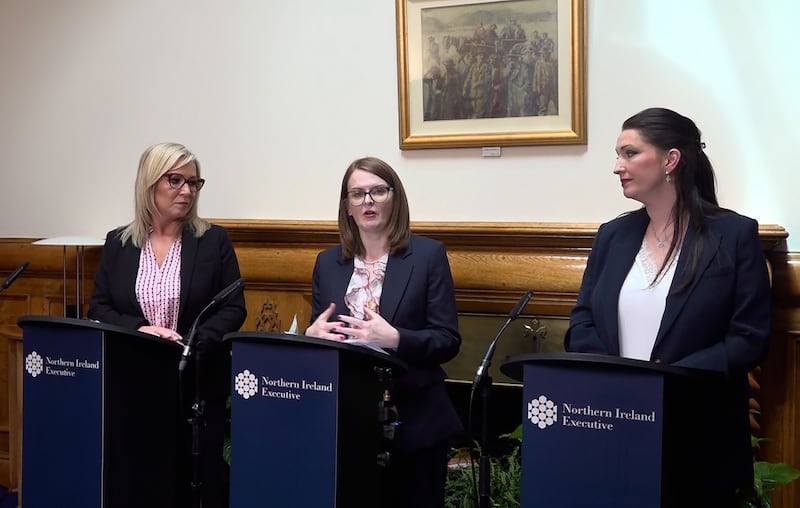It wasn’t a great week up at Stormont. Spring has not quite sprung.
The official opposition found themselves talking to empty benches, as the Executive parties seem to believe they can escape legislative scrutiny by choosing not to turn up for debates. This cut and run strategy won’t wash.
Whilst the backdrop of collaborative images and soft-spoken phrases from the first and deputy first ministers is welcome, it also masks all-too-real tensions within the Executive. This is after all a shotgun marriage arrangement.

The Alliance Party lost an MLA without so much as a blink of an eye and then got into an acrimonious spat with their DUP Executive colleagues over the nature of relationships and sexuality education proposed for schools. As this is likely to run, harmony counselling for both sides may be required.
But if Alliance had a couple of ropey days, the Ulster Unionists must feel as if they should have stayed under the duvet for the entire week.
First of all there was the incredible interview with would-be Ulster Unionist MP for North Down Tim Collins.
As a keen observer of all things political (and despite North Down voters sometimes electing mavericks), Collins never seemed like an electoral coup for the UUP. Perhaps more of a cuckoo?
He doesn’t even live in North Down, or Northern Ireland, and by the tone of his views, he hasn’t got much of political radar.
- Alex Kane: Please, Stormont, just give us a reason to believeOpens in new window
- Robin Swann budget row highlights how Stormont executive still hasn’t got a plan of action - The Irish News viewOpens in new window
- David McCann: Executive needs to do a few things well instead of lots poorlyOpens in new window
Military types often don’t get modern politics. They live in a hierarchical world or, as squaddies would say, “an environment where excrement flows downhill”.
Back in the day, a military background was regarded as an asset for any aspiring unionist: Captain Terence O’Neill, Major Chichester-Clark, or the philandering former Grand Master of the Orange Order Captain Lawrence Percy Orr.
Thankfully the era of Colonel Blimps is nearly over.
In hindsight, Mr Collins was clearly not ready for media but ultimately he was condemned by his own unfiltered words.
Doug Beattie, who served under Collins in the army, stood up to take the heat for his former commander by going on BBC’s Talkback.

Beattie is one of life’s bonhomies and if anything, way too open as a politician. The interview was calamitous and turned a bad situation into a catastrophic one. Alliance MP Stephen Farry has now gained an electoral bounce thanks to this unexpected ‘Beattie Bonus’.
Last week, the popular Robin Swann also finally reached the obvious conclusion that being an MLA in one constituency whilst running for Westminster in another – and trying to hold down ministerial office at the Department of Health – something had to give.
As pointed out previously, recently-returned MLAs considering running for Westminster so soon after the restoration of Stormont will be rightly viewed with some public scepticism. Even more so, if those MLAs hold ministerial office.

Sinn Féin called it right by saying none of its ministers will be running for parliament. Soon the justice minister may have to make a similar judgement call.
To put a nail in this bad week, Minister Swann couldn’t agree to the new Executive budget and his party voted against it.
Doug Beattie never wanted to enter the new Executive and for once he was right.
Doug Beattie never wanted to enter the new Executive and for once he was right
The sole purpose of the UUP in the government is provide a mudguard for the DUP tractor. Voting against something as serious as a budget whilst remaining in the Executive looks foolish because it is foolish. The Ulster Unionists need to regain some political dignity by leaving and joining the SDLP on the opposition benches.
In the meantime Beattie should advise would-be unionist candidates for parliament to ignore the writings of philosopher and politician Edmund Burke, who famously chided his Bristol voters that they were electing a member to parliament – not a representative. Unsurprisingly he didn’t maintain their confidence.



